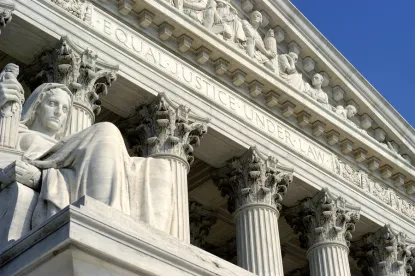Today, the Supreme Court resolved a circuit split regarding whether a creditor’s post-petition refusal to turnover bankruptcy estate property that it repossessed or impounded prepetition violates the automatic stay. The Supreme Court ruled in favor of the creditor and decided that it did not violate the automatic stay.
The issue in In re Fulton, 926 F.3d 916 (7th Cir. 2019), involved Chicago’s refusal to return vehicles that had been legally impounded prior to the bankruptcy filings. Reversing several lower court decisions, the Supreme Court, in an 8-0 decision (Justice Barrett took no part in the consideration of the case), ruled that mere retention of property of a bankruptcy estate after the filing of a bankruptcy petition does not violate the automatic stay of 11 U.S.C. § 362. The Court pointed out that reading § 362 to include the “mere retention” of property would render § 542 of the Bankruptcy Code, requiring an entity in possession of certain estate property to deliver that property to the bankruptcy trustee, “largely superfluous.” In short, while the Court’s ruling means creditors have no affirmative duty under § 362 to take steps to immediately return seized property to a debtor upon the debtor’s bankruptcy filing, § 542 does provide a mechanism for a debtor to file a motion or adversary proceeding seeking turnover of that seized property.
The Court’s decision has important implications for creditors who have exercised their rights pre-petition to take possession of collateral, specifically that the automatic stay of the Bankruptcy Code does not require automatic turnover of that collateral, and the passive retention of the collateral does not expose the secured creditor to liability for violating the automatic stay.
While positive news for creditors, it is important to note what today’s ruling does not mean. The decision is limited to and significant in the context of passive retention of estate property post-petition; affirmative actions to alter the status quo with respect to estate property, undertaken post-petition, can and will open the creditor to liability for stay violations. The court also takes pains to point out that it makes no decision with respect to any other subsection of 11 U.S.C. § 362(a) with respect to the automatic stay, nor makes any decision with respect to how the turnover provisions of 11 U.S.C. § 542 operate.
While the Court has provided some clarity and peace of mind, secured creditors should remain vigilant and wary of running afoul of other restrictions imposed on their actions by the automatic stay of § 362.




 />i
/>i

